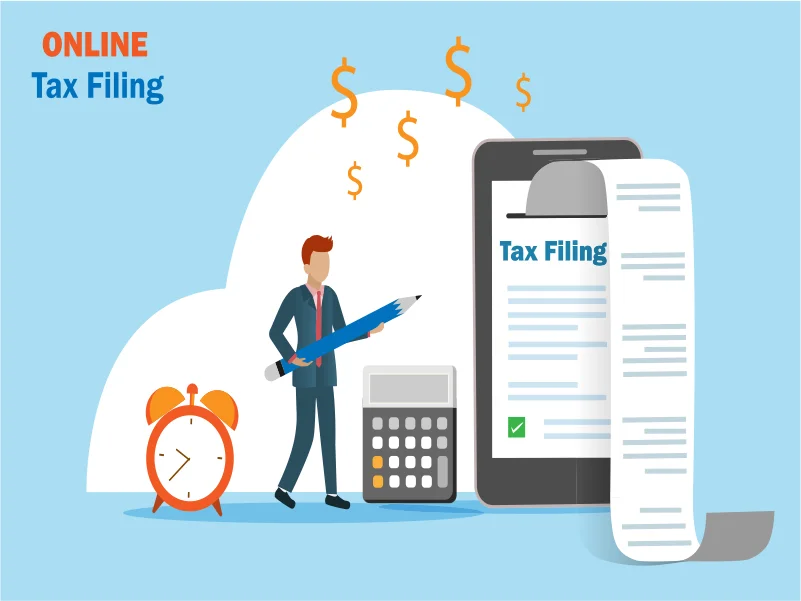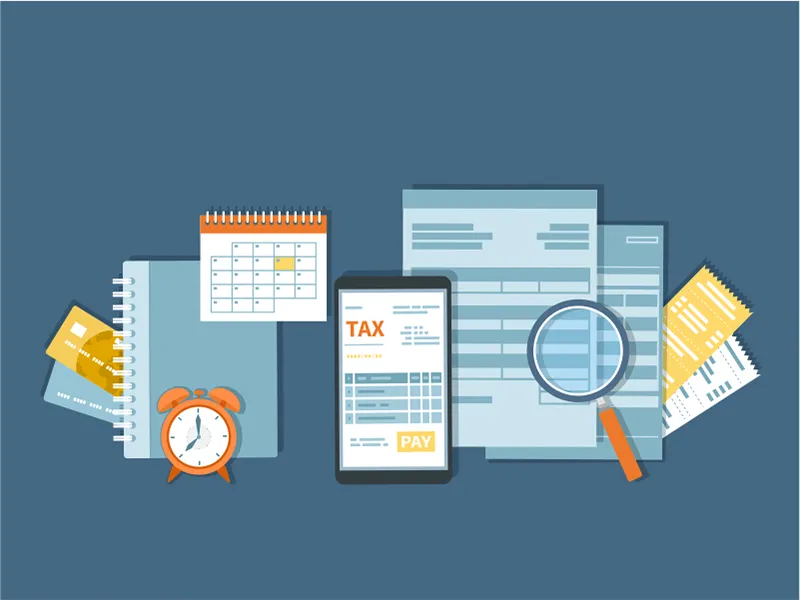
The last date of filing income-tax returns is 31st July 2023, which is not far away. Every year, the Income Tax department comes up with some changes in the tax return filing process. Therefore, every taxpayer must be updated about such changes to ensure an error-free ITR. You can begin your process right away to avoid last-minute glitches or missing information.
Before filing IT returns, one must be prepared with all the relevant information and documents. To aid the easy filing of IT returns, here we will share some important aspects to remember.
1. Maintain relevant documentation
Documents such as Form 16, proof of investment for deductions, rent receipts, TDS data, home loan interest certificates, etc. must be maintained safely while filing tax returns. It is also important to retain documentary evidence of IT returns filing for future reference. Many assessees tend to dispose of such documents once the IT return filing process is complete. All these are crucial documents that the IT department may request for reference in the future.
2. Ensure accurate disclosure of income
ITR filing process requires assessees to disclose all of their income sources and also accurate income from each source, irrespective of whether it is taxable or exempt. Many people miss out on disclosing smaller incomes, assuming they may not be required. This can attract notice from the IT department. Therefore, to ensure the appropriate filing of IT returns, one must include all types of income and disclose even such income that may be exempt from tax.
3. File ITR within due date
Most tax experts suggest filing IT returns on time. Waiting until the due date could result in errors, the possibility of technical issues with the online portal, etc. Also, filing IT returns after the due date attracts a penalty in the form of late fees. In some cases, this could also result in disallowance of deduction or losses being carried forward.
4. Select the right ITR form
One of the most crucial steps in ITR filing is selecting the appropriate ITR form. In all, there are 7 different ITR forms made available by the tax authorities. An assessee must choose one of these based on certain criteria like the nature of income, category of the assessee, losses being carried forward, etc. The table below shows the list of ITR forms and applicability.
| ITR Forms | Assessee type |
| ITR 1, 2 & 3 | Individual & HUFs |
| ITR 4 | Individual, HUFs and partnership companies |
| ITR 5 | Partnership companies, BOI, AOP, LLP, local authority etc. |
| ITR 6 | Companies except those claiming exemption under section 11 |
| ITR 7 | Charitable trusts, business trust, political parties, or companies claiming exemption under section 11, etc. |
5. Mandatory ITR filing for those with no tax dues
Many taxpayers assume that they need not file IT returns if they do not have any tax dues in a financial year. However, the fact is that ITR must be filed even if one does not owe any taxes in a financial year. Deductions and exemptions can be claimed by an assessee only if he/she files IT returns.
6. Verification of credits in Form 26AS
Since ITRs are now linked to Form 26AS, one can access pre-filled information pertaining to Form 26AS in the ITRs. However, it is advisable to check the information in Form 26AS against the ITRs to be on the safer side. Assesses must carefully verify the credits as per Form 26AS to ensure error-free filing of Income tax returns.
Did you know
Form 26AS is a consolidated statement that shows details of annual TDS or tax deducted at source, TCS or tax collected at source, self-assessment tax and any advance tax paid by the assessee.
7. Proof of deductions claimed
Assessees must also make sure to claim all the applicable deductions. Whether it is towards expenses incurred or investments made, one must keep track of all these items throughout the year to claim deductions. By double-checking all the information filled in the IT returns, one can ensure an overall smooth process.
Conclusion
The entire process of Income-tax filing can be a nightmare for many. However, apart from penalty and interest charges, there can also be other long-term consequences of not filing IT returns or delay in submission. Therefore, there is no escaping this task, as every tax-payer in the country must file IT returns. The above-mentioned tips can significantly benefit those who may be filing IT returns for the first time.
FAQs
From FY 2019-20, the IT department introduced new disclosure requirements while filing IT returns. Those who may have spent over Rs. 2 lakhs on foreign travel or spent over Rs. 1 lakh on annual electricity bills must disclose the actual amount spent. These, however, do not affect the tax liability and are only disclosures.
Yes, it is mandatory to e-verify IT returns or send a physical copy of the signed acknowledgment to the IT CPC office. Failure to e-verify within 120 days of receipt of acknowledgement is considered as invalid returns.
Yes, quoting Aadhaar is mandatory in the IT returns filing process.
Not filing IT returns on time attracts a maximum penalty of Rs. 5,000.
You can file IT returns within 31st December 2023 if you miss the July 31 deadline. However, this will attract a penalty in the form of late fees.


























